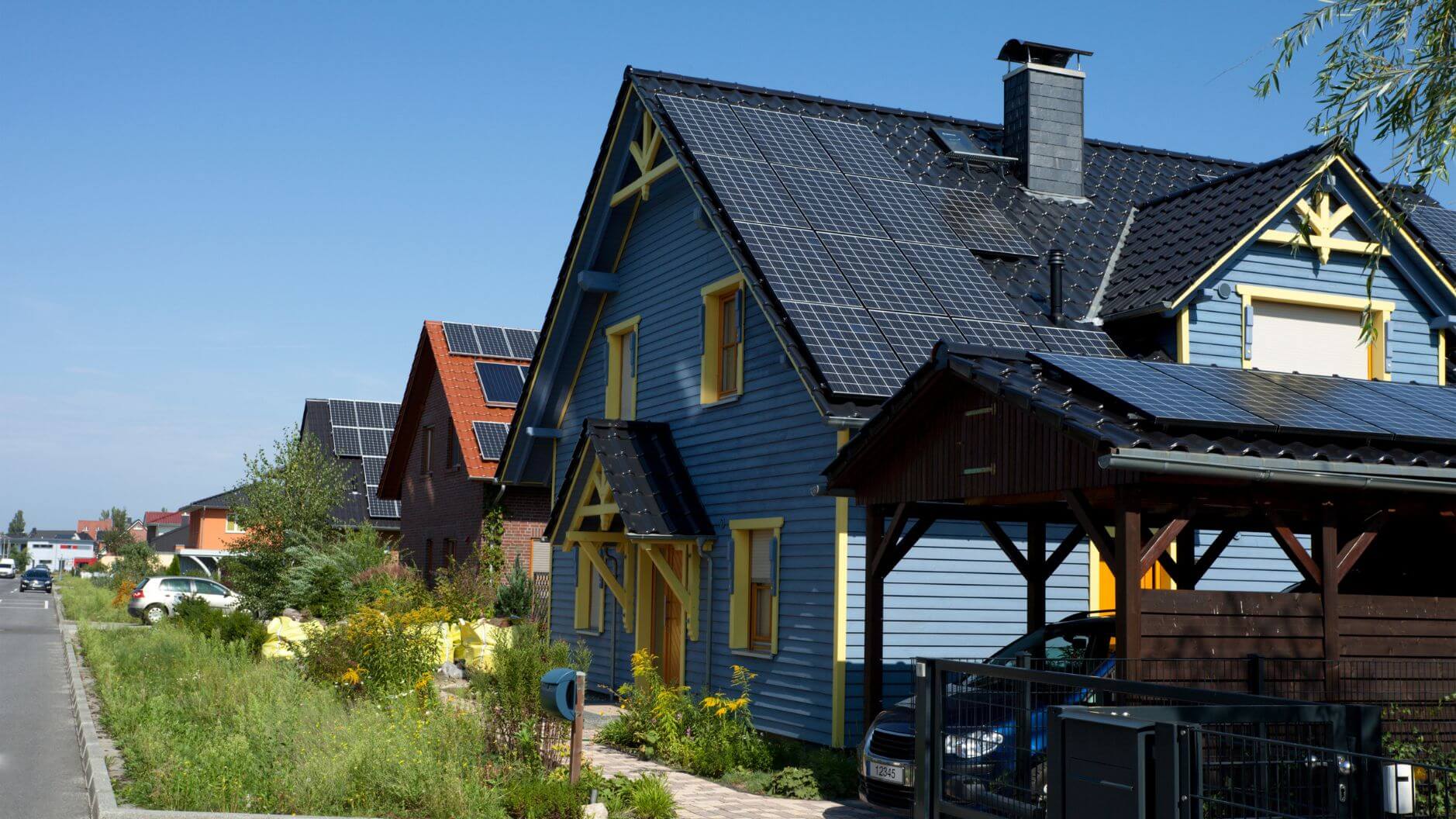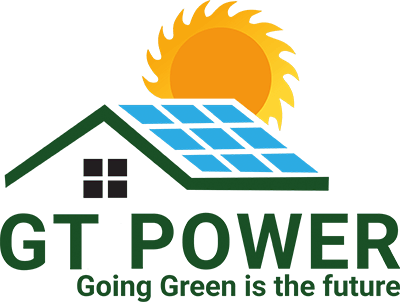
Installing a solar system doesn’t always guarantee increased home value. Several factors affect your property value, such as your location, electricity rates, and solar system. We’ll discuss these in more detail below.
States with growing solar markets promote solar conversion with specific laws and incentives that benefit homeowners. These states are ideal for solar-powered homes and offer the best potential for higher property value. The Solar Energy Industries Association (SEIA) listed the following states as the 10 best solar markets:
Residents in states with little to no solar market growth might not benefit from the boosted market value of going solar.
Homes with up-to-date solar systems have higher values than houses with aging systems. Solar systems typically last 25 to 35 years, so a home with a 15-year-old system can only provide another 10 to 20 years of service. Keep this in mind if you plan on selling a home with a solar system older than 10 years old.
Homeowners should have their systems serviced and maintained to maximize their potential home sale. High-quality solar panels typically have longer warranties than inexpensive panels.
Manufacturers’ warranties cover any defects or issues with the panels, while workmanship warranties cover installation errors. Use these warranties to make any necessary repairs and upgrades to keep your system in top condition. Additional coverage, such as a power production guarantee, protects your panels’ power output and production through the length of your warranty.
If you’re considering buying a home with a solar panel system, review all of the system’s documentation, including maintenance records and warranty coverage. These details should also include any replacements or upgrades completed during ownership. If you plan on selling your solar-powered home, keep it in peak condition.
If you plan to sell your home after installing solar panels, it’s important to choose the right financing option. You must legally own your solar panel system to include it in your home sale. Ownership is also necessary to use available solar incentives and reduce your solar panel costs. Only homeowners who purchase their systems outright or take out a loan are the owners of their panels.
Other financing options make solar home sales more complicated. If you choose a solar lease, your solar provider will remain the system’s legal owner. You must buy out the lease or transfer it to the new owner to sell your home. Depending on how much time is left in the lease, this may require a substantial payment. Afterward, the buyer can start a new lease with the solar company.
You may also be able to transfer the lease to the new owner, allowing them to take over the remaining time on your contract. This doesn’t require a significant payment from either party, but the new homeowner must meet the qualifications to become the new lease owner, including a credit check. A lease transfer could slow down the selling process if you can’t find a buyer that meets the solar company’s lease qualifications.
Solar power is most impactful in areas with high electricity rates, where producing your own energy will lower your monthly electricity bills. The U.S. Energy Information Administration (EIA) found that the average residential utility bill is $117.46 per month. If your monthly electricity bill is significantly lower than this, you may not save money by switching to solar power. States such as California, Connecticut, Texas, and New York have higher-than-average electricity rates.
Choosing the best solar technology raises your property value and potential selling price. Consider investing in a high-quality system with maximally efficient solar panels. The following solar programs and upgrades can help decrease your up-front costs while bringing the highest return on investment.
Solar incentives on the federal, state, and local level can lower your system costs. For example, the federal solar tax credit provides a tax reduction equal to 30% of your installation costs. Check for state and local incentives in your area on the Database of State Incentives for Renewables and Efficiency (DSIRE). You may also find city- and utility-specific rebates.
Most quality solar systems produce more energy than your home needs. Net-metering programs allow homeowners to sell this surplus energy back to the grid for credits on their utility bills or annual payouts. Net-metering programs vary throughout the country and may be enforced at the state level or by a specific utility company.
If net-metering is unavailable in your location or you’d rather store excess energy for your own use, you can install a solar battery instead. You can use this energy during blackouts, low sunlight days, or at night. Homeowners looking to live off-grid without any ties to a utility company can use solar batteries to sustain their homes. If you choose to remain on the grid, solar batteries can offset periods of high electricity rates, increasing your energy savings.
Overall, houses with solar panels are more likely to be purchased faster and for more money. Now you’ll be able to use the extra cash for a Hawaiian vacation. After all the work of selling a home is over, you’ll deserve it. Developers have even begun to build houses with solar panels already installed in the hopes it will appeal to potential new homeowners.
An ever increasing number of homeowners are investing in solar panels. Solar panels can help save money on energy costs, and as fossil fuels become scarcer, the cost of grid-produced electricity will only become more and more expensive. The perks of going green and the financial benefits are making more people consider adding solar panels to their homes.
Solar panels can be a significant investment upfront, but they can provide long-term financial benefits by reducing your electricity bills and potentially increasing your home’s value. The return on investment (ROI) of solar panels varies depending on factors such as location, energy usage, and incentives.
However, if you are still calculating then, It’s essential to consider the financial costs and benefits of solar panels, available solar incentives, and your potential savings to determine if they are worth it for your specific situation.


While solar energy has its advantages, it’s normal to question whether solar panels are really worth the investment. Homeowners may benefit differently from solar energy depending on their location and energy consumption. It is worth exploring the specific types of homes and individuals who benefit most from solar panels.
Homeowners who are eligible for state and federal tax incentives can benefit from installing a solar energy system. Although installing solar panels is an investment, incentives on a state and federal level make it more affordable.
The federal government offers a 30% solar tax credit (ITC) for homeowners, which allows them to claim up to 30% of the total cost of a qualifying solar energy system.
State and local incentives may also be available, making it even more affordable for homeowners to go solar. By speaking with one of our Solar Energy Specialists, you can find out more about the solar incentives that you may qualify for.
Homeowners with high electricity bills may benefit from installing solar panels in their homes. With the cost of electricity rising in the US, solar energy can help reduce utility bills and provide protection against future energy cost increases. If you’re looking to cut electricity expenses, going solar may be a viable option for you.
Net metering is a utility program that credits homeowners for any unused energy their solar panels generate. This could help you save money if your utility company offers net metering.
In addition, homeowners with solar panels and a battery backup can also offset time-of-use (TOU) rates by using excess energy during high-rate periods. This allows them to save on electricity costs during peak usage times, like in the evening.
Electric vehicle owners may benefit from installing solar panels to charge their EVs at home. This could help reduce the cost of charging the car and ensure that they have enough renewable energy for both their home and EV.
Joann Trial, a homeowner in Texas, found that solar panels were worth it for her family. She said ” I deliberately charge my car while the sun is shining and the solar panels are reducing the load on my electrical system. They overproduce and that allows me to send electricity back onto the grid.”
The location of your home is an important factor in deciding whether solar panels are worth it for you. Homeowners residing in areas with ample sunshine, such as Arizona or Florida, are more likely to benefit from solar panels compared to those living in wooded areas with limited sunlight. South-facing roofs are the most suitable for solar panel placement, although solar panels can still work during cloudy weather or in suboptimal conditions.
The lifespan of solar panels varies depending on the type of panel, manufacturer, and environmental conditions. However, most solar panels come with a warranty of 25 -30 years, which indicates that they can last at least that long. With proper maintenance and care, solar panels can continue to produce electricity beyond their warranty period, although their efficiency may decrease slightly over time.

The factors discussed above strongly suggest that home solar panels are a good investment. However, the final decision depends on your specific circumstances. Nevertheless, there are several benefits of going solar, such as
Additionally, the recent increase in the federal tax credit for solar energy systems has made solar more affordable. It’s advisable to seek guidance from a Solar Energy Specialist to make an informed decision about going solar.
